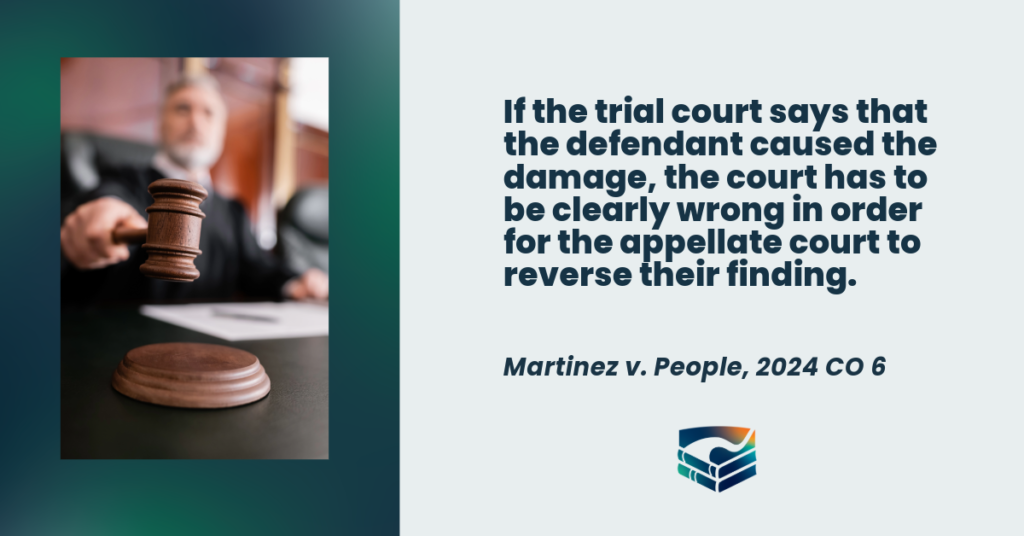The Colorado Supreme Court just clarified an important question about restitution orders in criminal cases: how much oversight is the trial court decision going to get on appeal?
A trial court must order a defendant convicted of a felony to pay restitution for any pecuniary loss he proximately caused his victim. §18-1.3-602(3)(a), C.R.S. (2023). In plain(er) English, this means a defendant has to pay for damages that he caused. The main issue in this case, and many others, is whether the damage was actually caused by the defendant.
The Facts
The facts in this case are interesting. Martinez stole C.T.’s bike, and C.T. saw Martinez riding away and went after him to get the bike back. C.T. caught up to Martinez and then turned in front of him, cutting him off. Martinez crashed into C.T.’s car, causing over $2000 in damage to the car.
The judge found Martinez had to pay to fix the car. It decided that Martinez was the proximate cause of the damage. C.T.’s pulling in front wasn’t enough to break the chain of causation and release Martinez from the responsibility for the damage.
The Legal Issue on Appeal
When Martinez appealed, he disagreed with the government on the standard of review. Most of the time, appellate courts give deference to the trial courts when reviewing the trial court decisions. Basically, trial courts don’t have to get everything 100% right, 100% of the time. The standard of review is a guide for how wrong the trial judge has to be in order for their decision to be reversed.
The Supreme Court Says: Defendant Loses.
The Supreme Court has decided that restitution determinations about whether the defendant was the proximate cause of the damage should be reviewed using a “clear error” standard.
As the Court found, whether the defendant caused the damage is “…based on individualized judgments of how facts connect a defendant to a victim, not on constitutional or statutory principles. While proximate-cause determinations undoubtedly can involve legal concepts…proximate cause is, at its core, a fact-based determination.”

This means that it’s going to be even harder for defendants to win an argument that they don’t owe restitution. If the trial court says that the defendant caused the damage, the court has to be clearly wrong in order for the appellate court to reverse their finding.
Most of the time, a defendant won’t appeal a restitution award of a few thousand dollars, because it would cost much more than that to take an appeal. This decision makes the odds of winning that appeal even lower.
The opinion in Martinez v. People, 2024 CO 6 can be found on the Supreme Court’s website here (pdf).

